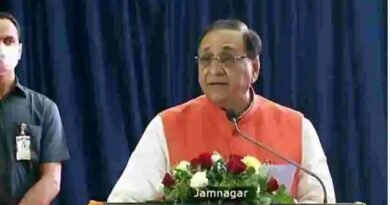Supreme Court order on CEC is bringing back old era of judicial activism, declare CJI a god
Supreme Court can’t become a parallel legislative body. But that’s exactly what the court is doing by ordering for a committee with CJI on it to appoint the Chief Election Commissioner.
The Supreme Court’s recent order on the appointment of the Chief Election Commissioner and Election Commissioners has transgressed into the legislature’s domain. This can have huge ramifications and potentially harm the foundation of Indian democracy, which rests on two constitutional masonic stones. One, there should be separation of powers among the three pillars of democracy; two, the Supreme Court of India should not act as a parallel legislative body.
A five-judge Supreme Court bench called for an independent committee comprising the prime minister, the leader of opposition (or the leader of the numerically largest opposition party in Lok Sabha) and the Chief Justice of India to advise the President on the appointment of the CEC and the ECs — until Parliament enacts a new law. The judgment is based on four points:
First, the Constitution does not have a written law for how the Election Commission should function. Second, the Election Commission should be independent for a healthy and functioning democracy. Third, many people think the Election Commission favours certain political parties. And fourth, the Supreme Court has the power to give “complete justice” under Article 142 of the Constitution.
The Supreme Court argued that the Election Commission isn’t functioning properly because of the “pernicious effects of the exclusive power being vested with the Executive to make appointment to the Election Commission.”
Currently, the President of India appoints the CEC and ECs based on the advice of the Union Council of Ministers headed by the PM under Article 324 of the Indian Constitution. The article does not specify the instruments of instruction for the President before making an appointment so does Parliament.
As per Article 324(2), the “appointment…shall, subject to the provisions of any law made in that behalf by Parliament, be made by the President.”
It is important to note that the executive powers of the Union are co-extensive with the powers of Parliament as per Article 73 of the Constitution. Therefore, the procedure adopted by the Council of Ministers while appointing CEC and ECs is itself a law. The word ‘any’ occurring in Article 324(2) is significant because it does not obligate Parliament to make a law as a condition precedent while appointing CEC or EC.
When a law contemplated by the Constitution under 324(2) is not a condition precedent for the appointment of CEC and ECs, Article 142 of the Constitution (which empowers the Supreme Court to do complete justice) will not come into play when law is itself not contemplated as the prerequisite of appointment.
Article 142 can only be exercised for doing complete justice by the Supreme Court. Its invocation was justified for providing judicial legislation in the absence of parliamentary laws. The Constitution itself provided that no decree or order passed by the Supreme Court is enforceable unless it is either backed by a law made by Parliament or prescribed by the order of the President to protect the scheme of separation of powers under the Constitution
A violation is in order
A comparative study of the various versions of the Article in question can substantiate this claim. The precursor to Article 142(1) was Article 118(1) in the Draft Constitution prepared in February 1948 by the Drafting Committee.
Article 118 (1) The Supreme Court in the exercise of its jurisdiction may pass such decree or make such order as is necessary for doing complete justice in any cause or matter pending before it, and any decree so passed or order so made shall be enforceable throughout the territory of India in such manner as may be prescribed by or under any law made by Parliament.
Article 142 (1) The Supreme Court in the exercise of its jurisdiction may pass such decree or make such order as is necessary for doing complete justice in any cause or matter pending before it, and any decree so passed or order so made shall be enforceable throughout the territory of India in such manner as may be prescribed by or under any law made by Parliament and until provision in that behalf is so made in such manner as the President may by order prescribe.
It is interesting to note that the additions in Article 142(1) weren’t made by any amendment proposed by the Constituent Assembly, but was recommended by the Drafting Committee.
That is to say, an order or decree of the Supreme Court is enforceable only with the sanction of Parliament. And as the sanction of Parliament cannot be obtained expeditiously, it has to be so prescribed by the President.
This provision can be understood as stemming from the principle of separation of powers. Our Constitution does not envisage that the Supreme Court becomes a parallel legislative body. Any order passed by it has to get the seal of Parliament or the executive.
Therefore, the Supreme Court’s recent order cannot be implemented unless it is approved by Parliament or the President promulgates an Ordinance under Article 123 of the Constitution giving temporary effect to the order of the Supreme Court.
It is pertinent to note that providing the composition of a committee comprising CJI amounts to a violation of separation of power. We are increasingly bringing the CJI’s office within the executive domain, which is not permissible in the Constitution.
Also, we are not paying heed to Dr BR Ambedkar’s words in the Constituent Assembly with respect to the Chief Justice. “But after all the Chief Justice is a man with all the failings, all the sentiments and all the prejudices which we as common people have; and I think, to allow the Chief Justice practically a veto upon the appointment of judges is really to transfer the authority to the Chief Justice which we are not prepared to veto is the President or the Government of the day. I, therefore, think that is also a dangerous proposition,” he had said.
We are of the considered opinion that the Supreme Court is on a mission to declare the Chief Justice of India as a ‘god’ or a deity of the country with the divine power, which we all must reject.
When Parliament did not enact a law in last 73 years and we do not see even a single private member bill introduced for it, that means, the Parliament do not want to interfere with existing mechanism of appointment of CEC and ECs. Last but not the least, the Supreme Court is not an arbiter of what advice is tendered to President and therefore, its interference with a mechanism provided by the Constitution is wholly unwarranted and uncalled for, nay, its unconstitutional.
It’s interesting that the same judiciary is not ready for any interference from the executive in its own process of appointments of senior judges by the collegium. The irony is that according to the constitutional scheme, its the executive that was entrusted to appoint the judges of the high courts and the Supreme Court. That power of the executive was usurped by the judiciary in 1993 through 2nd Judges Case judgment. The judiciary is still defending the collegium system, which was contrarian to the Constitution. But they want to have their say in the appointment of election commissioners.
Dilip Mandal is the former managing editor of India Today Hindi Magazine, and has authored books on media and sociology. Nitin Meshram practices law in the Supreme Court and various High Courts. He tweets at @meshramnitin_. Views are personal.
(Edited by Prashant)
Source: The Print




